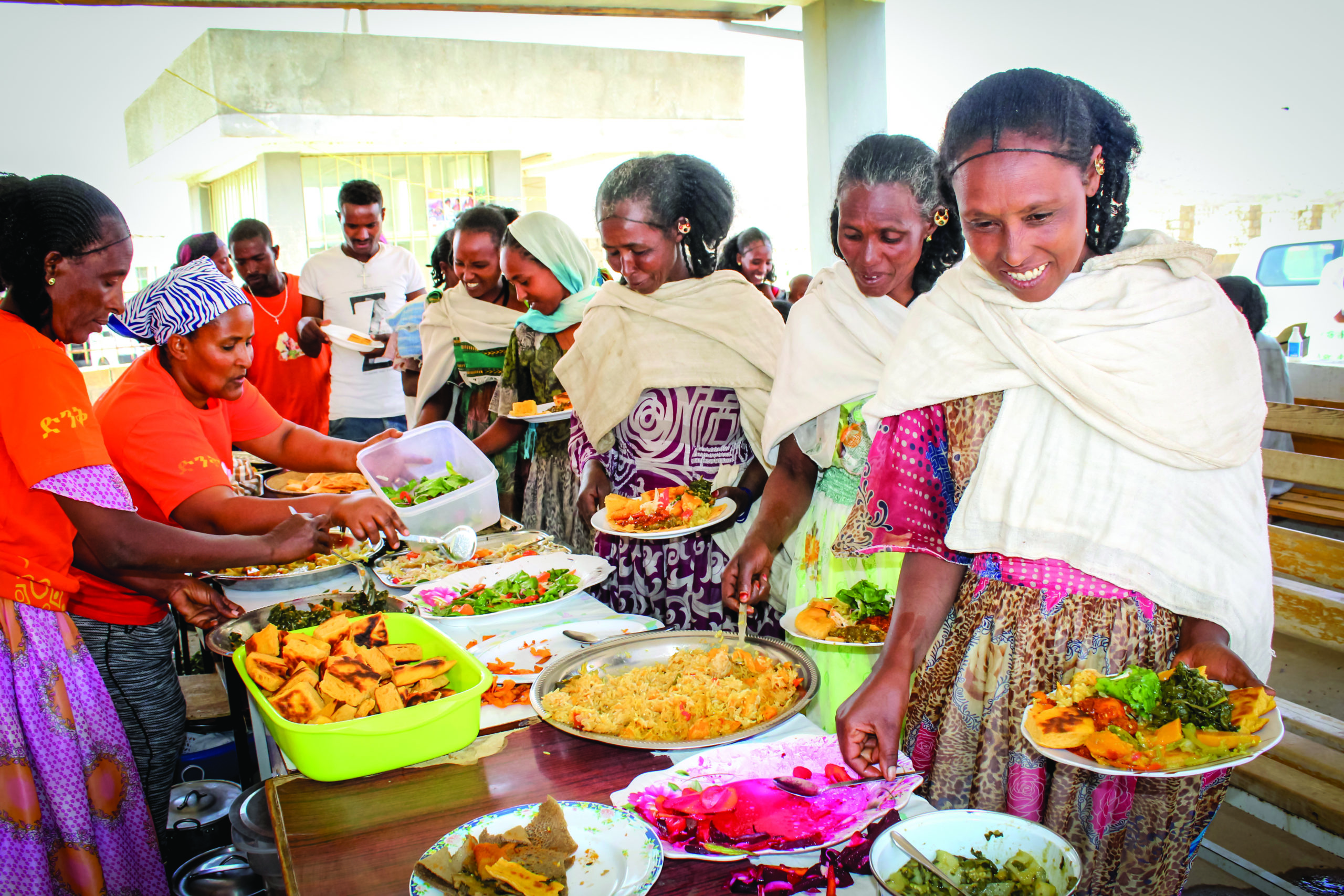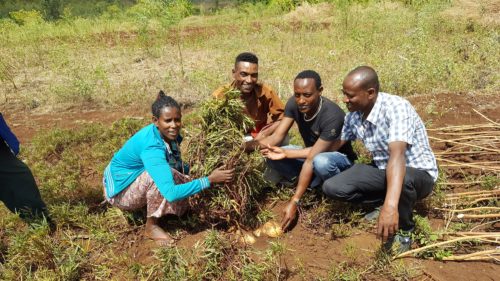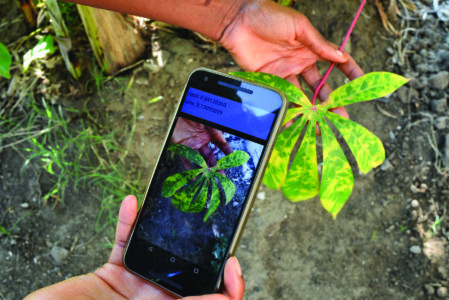
In addition to providing vital food security, orange-fleshed sweetpotato is rich in vitamin A, a nutrient that is essential for healthy growth in children. The project promotes its adoption at institutional level to address Ethiopia’s persistent malnutrition.
Background
Ethiopia continues to face the dual challenges of food insecurity and malnutrition. While addressing food security has been high on the political agenda for several decades, malnutrition has only been recently recognized as a key national priority. Nationally, 38% of children under five years are stunted and 24% are underweight, with around one third of child mortality associated with malnutrition. The Southern Nations, Nationalities and People’s (SNNP) and Tigray regions are among those worst affected, with stunting rates above the national average.
Vitamin A deficiency is a key contributor to child undernourishment; it limits growth, weakens immunity, affects eyesight, and increases mortality. Food biofortification is an appropriate solution to improving health and nutrition in these regions. While cereal-based diets predominate, sweetpotato is grown widely and is an ideal food security crop. Sweetpotato is highly efficient in transforming water into calories, has a short maturity period, and can be harvested during the ‘hunger months’ before the cereals ripen. Orange-fleshed sweetpotato (OFSP) also provides a rich source of vitamin A, with a small plot of just 500 square meters meeting the daily dietary requirements of a family of five.
The government of Ethiopia is committed to incorporating the adoption of biofortified crops, including OFSP, into its programs, policies and strategies. While some progress has been made, there is still a long way to go to turn policy commitments into widescale impact on the ground.
This project aims to build sustainability and resilience by promoting institutional support for OFSP adoption, and strengthening the capacity of agricultural development and health promotion institutions to deliver improved food security and nutrition outcomes.
Objectives
- Strengthen supporting systems for widespread OFSP adoption by identifying key institutions, links and coordination mechanisms; highlighting technical and institutional gaps in capacity; and reviewing evidence of sweetpotato benefits.
- Build the capacity of key agricultural development, health promotion, academic and farmer institutions to promote and implement sustainable OSFP technologies.
- Document and disseminate evidence, examples of best practice, and lessons learned on OSFP use to improve food security and nutrition.
- Consolidate advocacy for policies and programs in support of OFSP as part of a healthy diet.
Approach
The project builds on CIP’s previous experience in disseminating OFSP through a combined agriculture, nutrition and marketing approach, which builds both supply and demand. Having demonstrated the feasibility and efficacy of OFSP in improving health and livelihoods, CIP is now seeking to scale out the benefits to promote widespread impact, sustainability and resilience among vulnerable populations. The project aims to integrate the combined approach into the regular mandated work of the regional agricultural development and health promotion agencies. This tactic has already received policy support in several other African countries, including Kenya, Malawi, Mozambique, Nigeria and Uganda. The project is in line with Ethiopia’s commitment to ending undernutrition by 2030 and its national development plan to promote nutrition-sensitive agriculture.
Achievements
The first stage in strengthening support for OFSP involved an analysis of current capacities, and planning, implementation and evaluation processes among key institutions, including the regional bureaus of agriculture and health. This took the form of participatory ‘selfdiagnosis’, and resulted in formal system strengthening plans, prepared in consultation with a wide range of stakeholders.
Stage two focused on strengthening the capacities of selected institutions to implement OFSP awareness, dissemination and marketing programs. Activities were based on the recommendations of the system strengthening plans and included training technical and planning personnel, demonstrating good practice learning cycles, and sharing examples of success and lessons learned through existing regional stakeholder platforms.
Partners set up demonstration sites for providing training in vine multiplication, drip irrigation and producing foundation seed. These helped to increase the availability of planting materials and knowledge to farmers, the private sector and agricultural research institutions, as well as promoting better links among stakeholders. The project worked to build capacity and connections among health promotion institutions by organizing cooking demonstrations and showcasing nutrition-rich sweetpotato recipes. Teachers and experts employed in training centers also participated in courses on a wide range of topics.
Evidence-sharing and advocacy efforts included field days, site exchange visits and production of communication tools such as policy briefs, factsheets, and case studies. Partners also presented research findings at a national nutrition program review meeting, regional planning meetings, and an update meeting for agricultural college instructors.
The achievements and lessons learned have led to identification of several priority areas for future activities. These include the need to strengthen marketing systems, build private sector engagement, develop a national strategy with government, and continue evidencebased advocacy.
Key outcomes
| Outputs |
| Diagnostic studies and regional system strengthening plans produced through stakeholder participation. |
| Capacity building activities conducted with regional bureaus of agriculture and health, agricultural research centers, and training institutions. |
| Evidence and advocacy shared through practical demonstrations, knowledge products and institutional planning meetings. |
Contact
Haile Tesfay
CIP, Ethiopia
h.tesfaye@cgiar.org
Thanks to our donors



